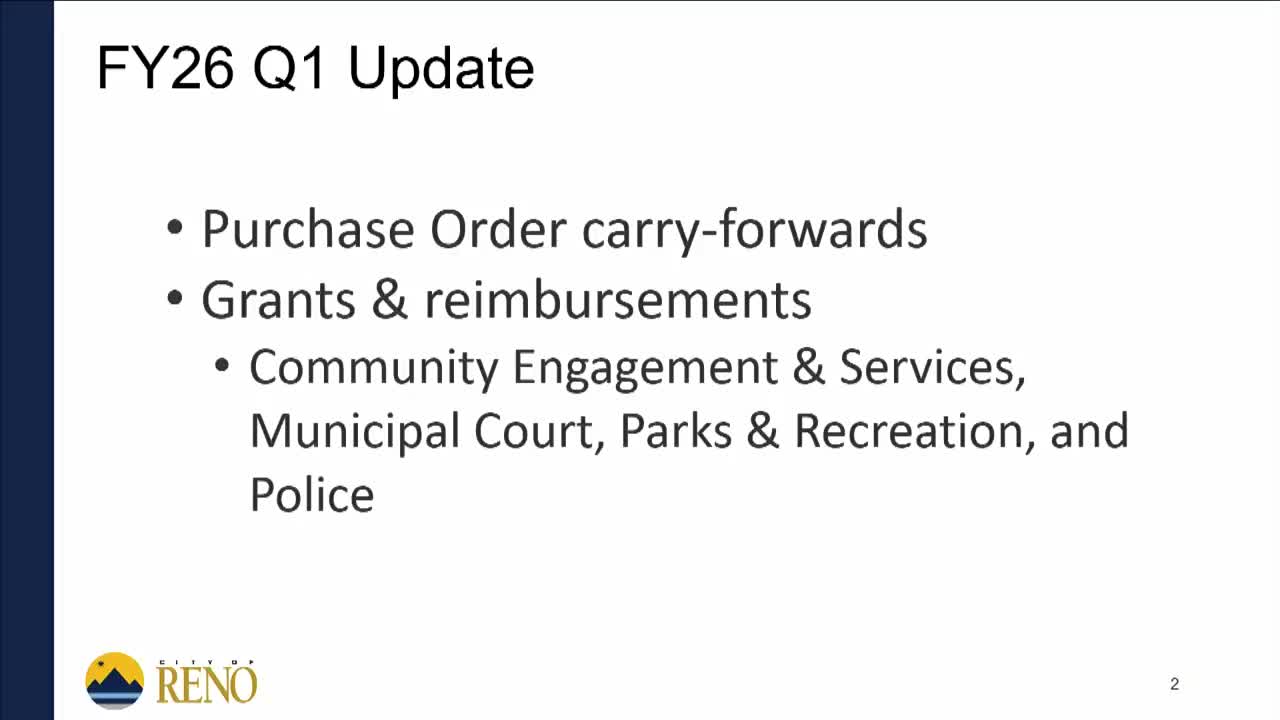Reno updates pilot rapid‑rehousing program at Village on Sage; city reports early success and lower per‑person cost than emergency placements
Get AI-powered insights, summaries, and transcripts
Subscribe
Summary
City staff, Volunteers of America and the Reno Housing Authority presented a one‑year update on the City of Reno’s rapid‑rehousing pilot that places single adults at Village on Sage with on‑site wraparound services while they wait for permanent subsidized housing.
City staff, Volunteers of America and the Reno Housing Authority presented a one‑year update on the City of Reno’s rapid‑rehousing pilot, a two‑year program that temporarily houses single adults at Village on Sage with service coordination while they await permanent subsidized housing.
Elaine Wiseman, director of Housing and Neighborhood Development, said the program was established after city outreach identified people who are homeless, have some income, and were already on subsidized housing waiting lists but repeatedly fell back into homelessness while awaiting placement. The pilot uses Village on Sage’s month‑to‑month dorm‑style units to stabilize participants while Volunteers of America provides case management and the Reno Housing Authority assists with voucher process navigation.
Wiseman said the program has enrolled 36 participants to date and remains at capacity for the 25‑unit allocation (25 is the site maximum). Of the 36 people who have entered the program so far, 24 were enrolled at the time of the update. Five former program participants had moved into housing using an RHA voucher and three had moved to other permanent housing placements.
Volunteers of America service coordinator Cesar Garcia Arellano and VOA representatives described the on‑site wraparound services—financial literacy, life‑skills training, bus passes and transportation assistance, help with documentation and applications, and assistance getting to interviews such as RHA interviews. Participants pay 30% of their income toward rent while the city covers the subsidy gap; Reno Housing Authority helped fund part of the service coordinator position.
Wiseman presented comparative figures from national research showing an estimated public cost for an unsheltered individual in the community at roughly $3,600 per month. By contrast, the city’s program cost per participant—subsidy plus services—averages about $560 per month, and the program’s average length of stay has been about six months. Wiseman framed the pilot as a lower‑cost bridge that shortens time spent unsheltered and helps participants maintain placement readiness for vouchers.
Council members praised the collaborative approach and requested follow‑up on accessibility and transportation for clients with mobility limitations. Volunteers of America said they coordinate in‑kind transportation and can arrange van or ride assistance when necessary; VOA and city staff also said they work with CARES Campus transport, local transit passes and other nonprofit partners to help clients reach appointments and services.
Staff said the pilot is funded for the two‑year period approved by council (initial contingency allocation $200,000) and reported donations and partner funding that extend program capacity. No council action was required; staff asked to return with additional performance outcomes as vouchers are issued and participants transition to permanent housing.
